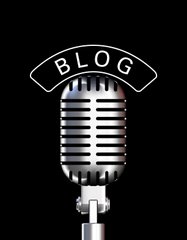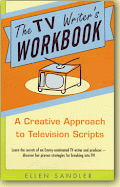







After graduating from Brown University, Mollie began her publishing career as a literary scout, advising foreign publishers regarding the acquisition of rights to American books. She then worked as an editor at the Crown imprint of Random House, before switching over to "the other side" and becoming an agent at JVNLA (The Jean V. Naggar Literary Agency) in 2003. Mollie's list includes literary fiction, narrative non-fiction, and a bit of practical non- fiction. She's particularly interested in fiction that bridges the literary/commercial divide, combining strong writing with a great plot, and non-fiction dealing with popular science, medicine, psychology, cultural history, memoir and current events.
She's very hands-on, working collaboratively with her authors to refine their projects, then focusing on identifying just the right editors for the submissions.
In addition to her work as a literary agent, Mollie also teaches classes on non-fiction proposal writing at Media Bistro.
LEADING CLIENTS
Dorothy Hearst, Mike Sager, Jonathan Evison, Gregory Levey, Rose Marie Kinder
Barbara Pope, Brenda Janowitz, Jess McCann, David Levy to name a few...
MOST RECENT SALES / FORTHCOMING BOOKS
Lenore Skenazy/ FREE RANGE KIDS
Rafe Bartholomew/PACIFIC RIMS
Jonathan Park/THE LAST FARMER
Elizabeth Eslami/BONE WORSHIP
Gregory Levey/ HOW TO MAKE PEACE IN THE MIDDLE EAST IN SIX MONTHS OR LESS, WITHOUT LEAVING YOUR APARTMENT
E.I. How does a new writer, or a veteran author, make a seven figures in one sale? Is it the works of both the agents, editors or is it luck?
Molly Glick: The old adage is definitely true: it takes both preparation and luck! These days in publishing, decisions are often made by committee. Back in the day, a single editor would fall in love with a project and take it to her publisher to get permission to buy it. These days, with a few exceptions at houses like Ecco and FSG, most editors have to get projects they want to acquire past a whole board full of editors, sales people and marketing and publicity people, so it's much harder to get a 'diamond in the rough' past. That's why I do a lot of editing and revising with my authors, polishing the novel before submitting. But once the submission itself is in the best possible shape, it's time to think strategy-- figuring out how many editors to submit to, and which ones, how to position the work, and whether to go to auction or not-- that's part of what goes into a good sale, too. But as for seven figures? There's a bit of pixie dust sprinkled over a deal that size as well.
E.I. Your taste in books is obviously eclectic based on the genre categories you are willing to represent, including literary, young adult fiction, narrative nonfiction and memoir. That's a lot to juggle. What particular qualities do you look for in work by a first time young adult writer, for example?
Molly Glick: This question made me laugh because it's so true: it's hard to represent multiple types of books! My life would be so much easier if I were "the cookbook agent" or "the narrative nonfiction agent" or "the young adult agent", and there are lots of genres I'm just not the right agent for (such as picture books or genre fiction). But one of my favorite parts of this business is that it's my job to fall in love with a book, and I really enjoy learning something new with every project I take on, so for me it's worth the extra work. And really, what I'm looking for in anything I take on is the same. I'm looking for a book with a unique voice. I'm looking for a great plot and great characters that convey a bigger idea. And I'm looking for a book I can't put down.
E.I. How do you feel about working with first-time authors? How many and what kinds of first-time authors have become published through your efforts with Foundry Literary Media?
Molly Glick: I love it! One of the biggest thrills in my life is making a first time author's dream come true by selling their book. And I also really enjoy that moment of sitting down with an author and asking "what do you want to achieve in your writing life" then helping them make that dream a reality. Almost all of my novelists, even ones like Johnny Evison or Dorothy Hearst or Zoe Klein who are now working on second or third books, came to me as first time novelists. I plan to be in this business a long time, so I'm always looking for authors who I can break out and grow from project to project!
To learn more about Mollie Glick, please visist their website











.png)

No comments:
Post a Comment